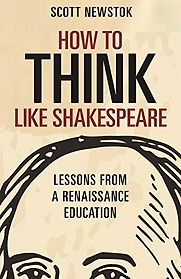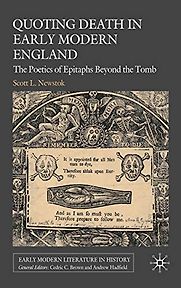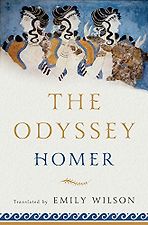How to Think Like Shakespeare: Lessons from a Renaissance Education
by Scott Newstok
How to Think Like Shakespeare by Scott Newstok, Professor of English and founding director of the Pearce Shakespeare Endowment at Rhodes College, is a lively attempt to glean what we can learn about teaching by thinking about William Shakespeare (1564-1616). It’s part of Princeton University Press’s Skills for Scholars series, “books designed to equip scholars, students, and academic leaders with the resources needed to build and communicate knowledge today.”
“My conviction is that education must be about thinking—not training a set of specific skills,” writes Scott Newstok in the opening lines of How to Think Like Shakespeare: Lessons from a Renaissance Education. And that’s exactly what he proceeds to make us do, throughout the book. Short, standalone chapters look at different aspects, but in a quirky, light, indirect way. This is not a book with all the answers, it’s more a book that is full of questions or, rather, quotations.
Hence we hear the voice of Zhuangzi (on how caring too much about a target can make you miss it) EM Forster (on how spoon-feeding “In the long run teaches us nothing but the shape of the spoon”), Maya Angelou (bringing alive Shakespeare’s universality: “I know that William Shakespeare was a black woman.”), Iris Murdoch (on what we should be taught at schools: “to learn to desire to learn.”)
Newstok is a Shakespeare scholar, but what piqued my interest in him, when I first saw the book, was that he had won a teaching award at Rhodes College, where he is a Professor of English. In writing about education, he is writing from experience in the trenches, both as an academic and as a parent. He cares.
Inevitably with a book that is gathering together so many people’s thoughts, it’s sometimes difficult to tell exactly what Newstok is getting at or himself thinks. It’s true that it’s hard to make judgments on the kind of things he’s discussing, it’s not only easier but probably also better to leave them open. And yet… as readers, we like definitive statements.
But it’s worth persevering, because the book really does have insights that can transform your thinking about the learning process. For example, in “Of Imitation” he explores plagiarism. Shakespeare was not able to cut and paste entire essays from the internet, but he borrowed happily from his sources, and without attribution. What are we to make of that?
Another interesting chapter is entitled “Of Constraint.” Having strict formats and rules, as sonnets do, is, paradoxically, incredibly liberating. And, I would also add, inspiring: put it this way, since speaking with Scott about Shakespeare’s sonnets and reading his book, I’ve been mulling writing a sonnet myself, not about anything fancy like love (I’ll leave that to Shakespeare), just about my daily life, doing the washing, buying food for dinner, transcribing an interview.
 Sophie Roell, Five Books Editor
Sophie Roell, Five Books Editor








Five Books review